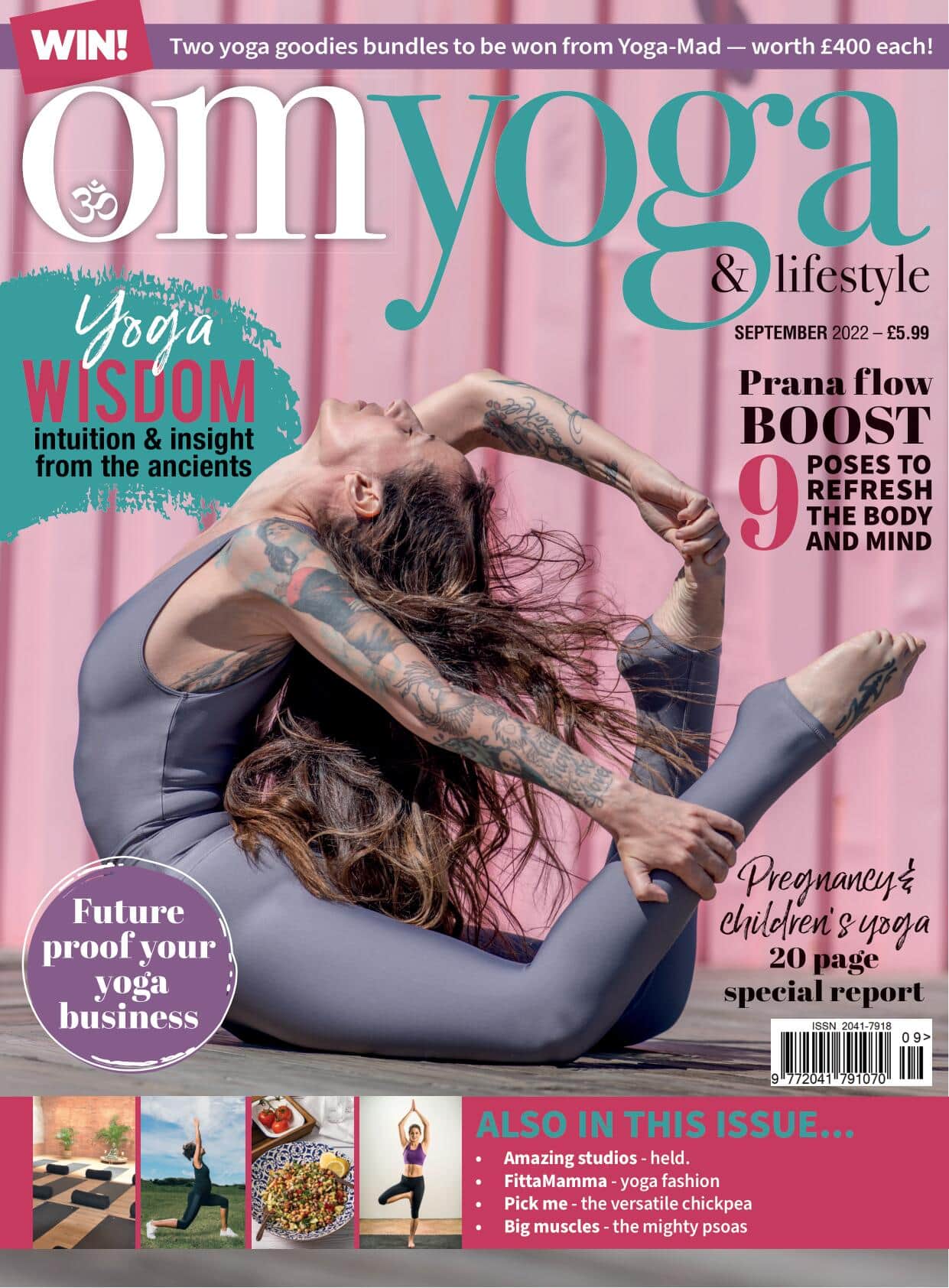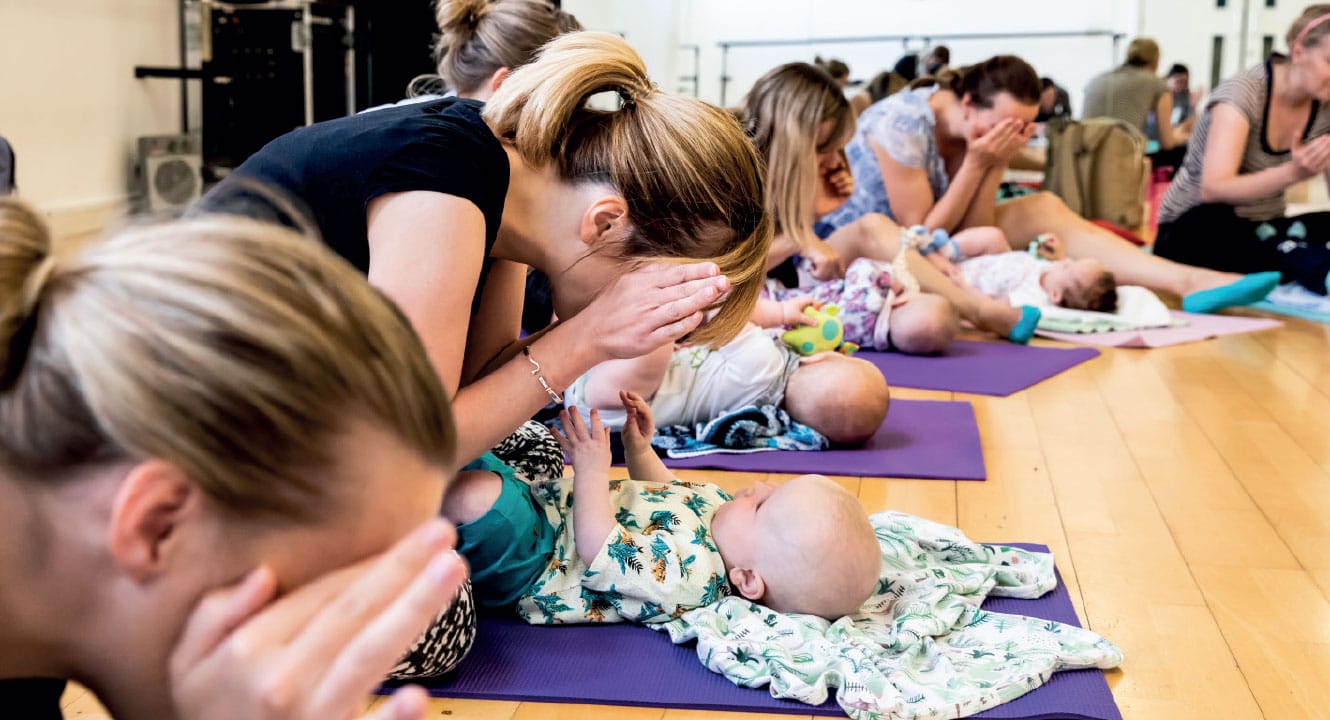
Women supporting women
Women supporting women through the most incredible journey of their life – motherhood. By Jackie Heffer-Cooke
Anyone who is a mum will remember the moment of looking at a white stick you’ve just pee’d on and thinking, ‘oh my’.
Of course, some of you would have known instinctively that you were building a baby – whereas for others it may come as a little more of a surprise. But I bet our feelings are a shared collaboration of excitement, anxiety, love, and fear, all wrapped up in a practical whirlwind of nausea, fatigue, heartburn, and PGP. Sound familiar?
In the UK, being pregnant, giving birth, bringing up baby, children, teens, it’s a whole spectrum of emotion and feeling, coinciding alongside career shifts, stay-at-home decisions, nurseries, schools and after-school clubs. Welcome to the modern day equivalent Niyama of ‘surrender’, the realisation that we are no longer fully in control of our own destiny (if we ever were) and that our state of peace and happiness is now dependent on the unconditional love which is bringing up kids. A true Anahata practice.
For me, here at ZenMuma and ZenKids,it is all about ‘The Village’. In our somewhat disconnected, hyper real world, a lot of us women have no one to turn to, to share our pregnancy, birth and mothering experiences with, in a personal meaningful way. The lucky among us have good family units, strong matriarchal bonds, and good friends and sisters who are experiencing this journey alongside us.
Others do not. I was one of the women who felt isolated and lonely during and after the birth of my first child 17 years ago; one minute the professional executive, the next minute the mother. I felt a lack of structure, understanding, community and connection.
Happily for me, I’m good at recognising what I need and when I need it, so I set about building a new community of women via clubs and events, but it took a lot of reaching out to get there. My fear for many is they fall through the social net and end up feeling like the four walls are closing in on them pretty fast. Another hazard of living in these funny nuclear family houses.
Other cultures take an altogether more inclusive rhetoric of birth. In Africa, for example, the saying “it takes a whole village to raise a child” is said to have come from the Igbo and Yoruba people of Nigeria, and is adopted as the African way of supporting, celebrating, blessing and sharing responsibility for the child by the whole extended family.
In Africa, many mothers and fathers work especially hard, for many hours of the day, for many days of the year; if the whole community shares the care and upbringing of the child, parents feel more supported, less stressed, less isolated and therefore happier.
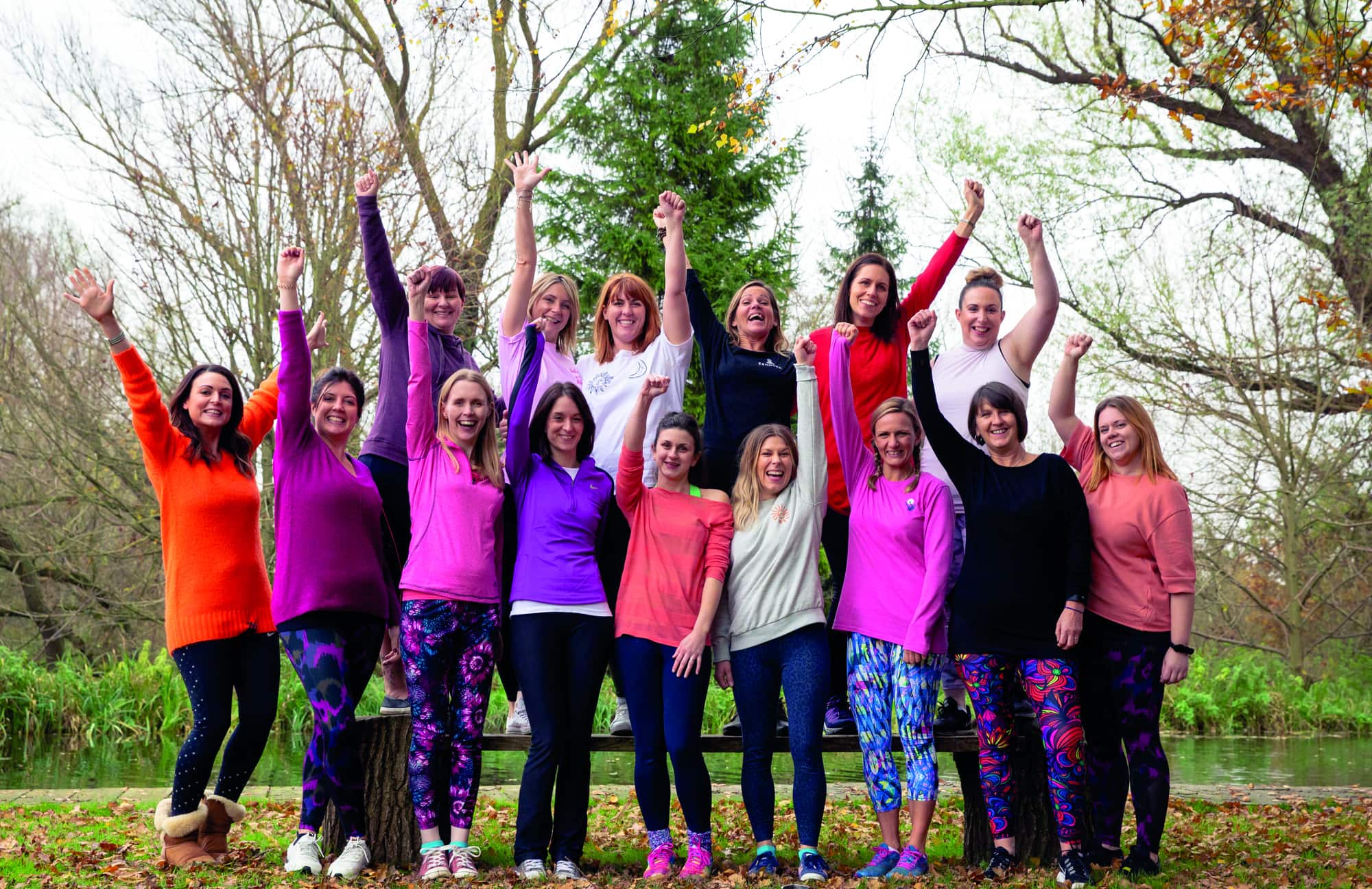
Happy and supported parents result in happy and supported children. The side effect of ‘The Village’ is a sense of sharing, trust, safety, learning to adapt, forgive, work and play together. In other cultures there is a shared sense of belonging through ceremony.
Traditionally in some pathways of Hinduism, during the pregnancy stage there is a ceremony in the third month – Punsavana – with the focus on strong physical growth for the baby. Then, in the seventh month – Simantonnyana – meaning ‘satisfying the craving of the pregnant mother’, a spiritual ‘baby shower’ for the mum, where prayers focus on healthy mental development for the mum and the baby.
Hindus have a strong belief that the mental state of a pregnant woman affects the unborn child – which of course they got right way before our science of neurology, psychology and physiology ‘proved’ it.
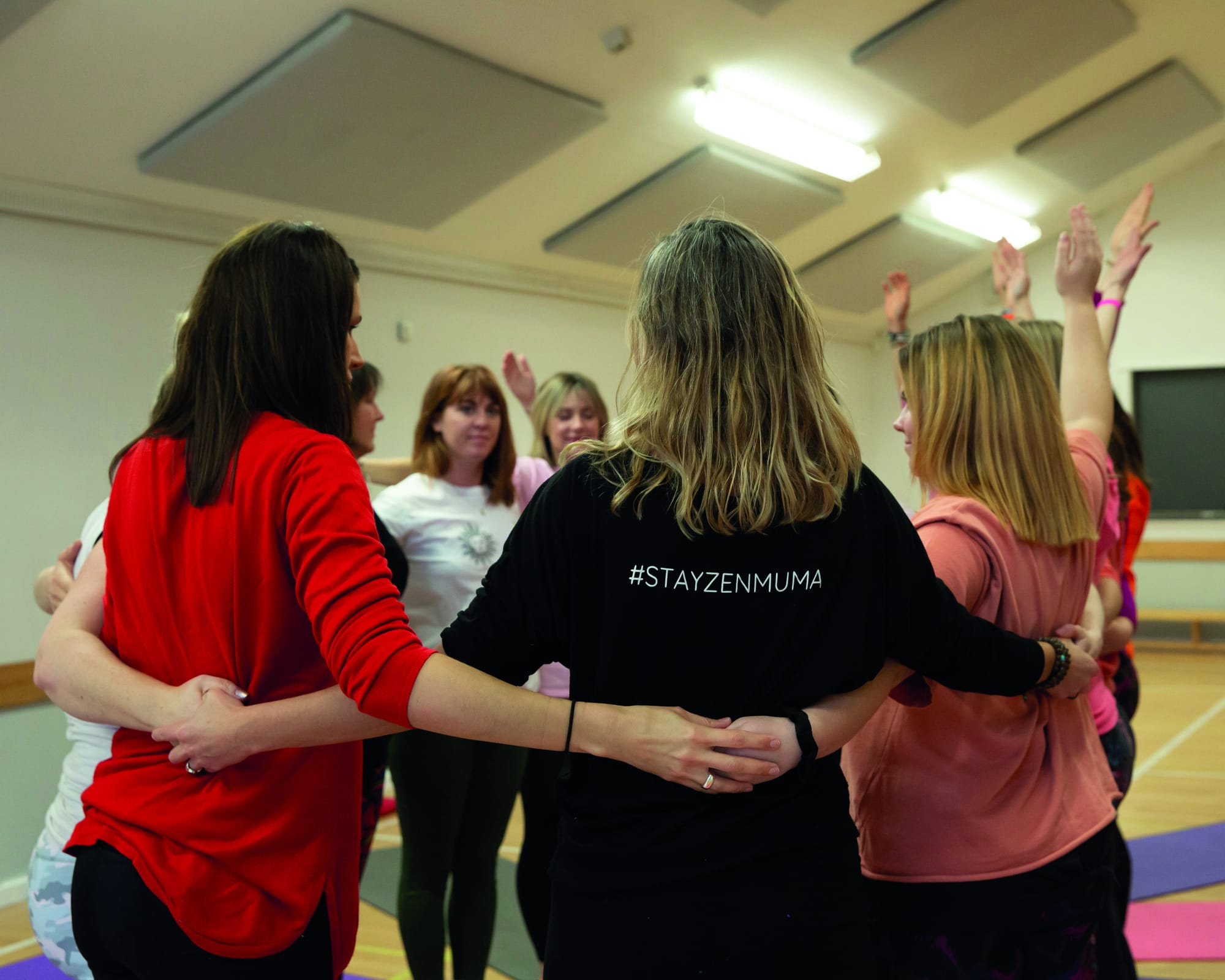
There are many other rituals to assist the rites of passage of the family, such as Namakarna (a naming ceremony); Nishkarmana (the child’s first trip out of the village); and Annaprasana (the child’s first taste of food). The whole community joins in and celebrates each step of this precious life.
And then later, just before the child starts school, the Upanayan, ‘The sacred thread ceremony’: the three strands of the sacred thread representing honour and respect to firstly knowledge, secondly parents, and thirdly society. How wonderful is that.
So, why am I writing about this? Deep down, we know this wisdom too, we understand the importance and need for sharing, holding and passing down knowledge from woman to woman, mother to mother. We know we need women, supporting women, through the highs and lows of motherhood, and here at ZenMuma and ZenKids this is our main focus, bringing local communities of women together, with our practitioners becoming a guide. A guide to physical, emotional, and yes, spiritual health and wellbeing, by sharing our beautiful practice of yoga.
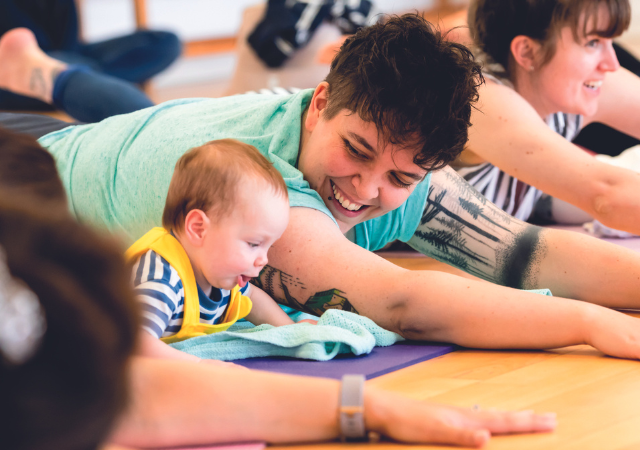
We share ideas on how to move our bodies, using physical asana: caring for and restoring pregnant bodies, giving inspiration to birthing bodies, holding and protecting postnatal sleep deprived bodies.
We promote much-needed prana and breathwork: that which will hold women steady through pregnancy, empower them in birth, and care for them throughout those crazy days of new mothering. And mindfulness: offering positive affirmations, emotional support, inspiring mantra, and encouraging us to enjoy the moment, as it reveals itself today. There is no better service than to care for our community of women in this way, whilst at the same time holding your own journey too, as we step through each mothering chapter, together.
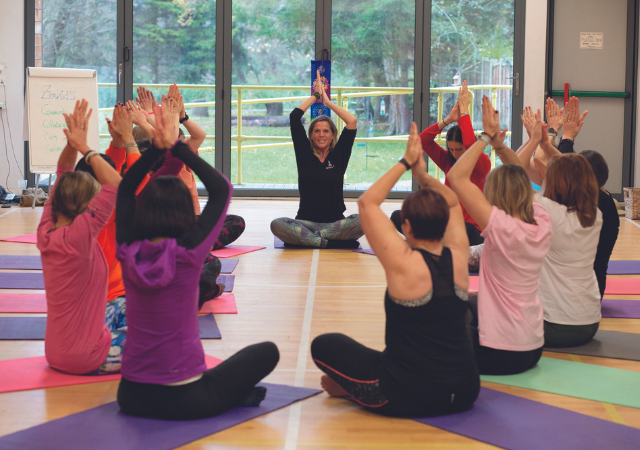
Join the international ZenMuma and ZenKids training programme and support women in your local area with award-winning specialised yoga content. To apply email hello@zenmuma.co.uk and for more details go to zenmuma.co.uk and @zenmuma_zenkids


